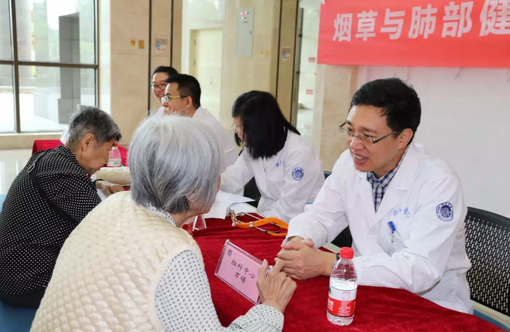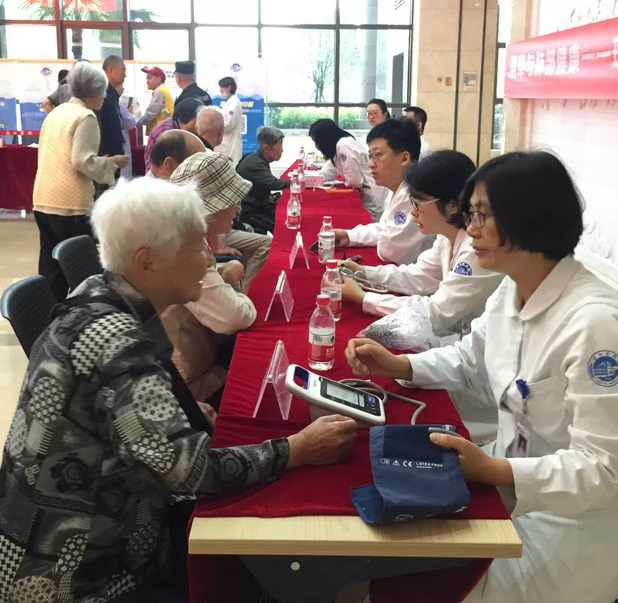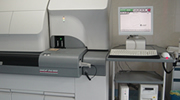Did You Know that Smoking Hurts Your Lungs, Heart and Brain? Zhejiang Hospital Held World No Tobacco Day Charity Clinic on May 31
Hits: 3261 Time: 2019-05-31
Today is the 32nd World No Tobacco Day, and the "5.31 World No Tobacco Day" Tobacco Control Commitment Signing Ceremony and Large-scale Charity Clinic jointly organized by the Department of Preventive Health Care, Social Development Department, Outpatient Department and Youth League Committee of Zhejiang Hospital was successfully held in the Sandun Hospital of Zhejiang Hospital.

The negative impacts of tobacco on human lung health range from chronic respiratory disease to cancer. There is strong research evidence that smoking can lead to chronic obstructive pulmonary disease and asthma in adolescents, and increase the risk of developing tuberculosis and other respiratory infections. Infants exposed to tobacco smoke toxins in utero due to maternal smoking or maternal exposure to secondhand smoke often experience reduced lung growth and function. Smoking is the leading cause of lung cancer. More than two-thirds of lung cancer deaths worldwide are caused by smoking. This year's World No Tobacco Day theme: tobacco and lung health. It took the annual opportunity to hold a large tobacco control publicity and clinic activity at Zhejiang Hospital, which included the signing ceremony of tobacco control pledge, health clinic consultation, blood pressure measurement, tobacco control information distribution and a lottery session, etc. The activity attracted hundreds of patients and their families, medical staff, and logistics workers.

Experts from the Brain Center, Cardiovascular Department, Respiratory Department, Thoracic Surgery, Otolaryngology Department, Radiology Department and Ultrasonic Diagnosis Department of Zhejiang Hospital were invited to give out-patient guidance and provide professional health consultation for patients, which will play an active role in guiding the public to understand the hazards of smoking and advocate the creation of a good smoke-free environment.
Lung, heart and brain are damaged.
They rushed in asking for help to quit smoking.
Mr. Li, 56, has coronary heart disease and had a heart stent installed two years ago.
Knowing the news of the clinic, he came to consult early in the morning, hoping to get advice in medical treatment and medication. Mr. Li had a history of smoking for many years before, until before the heart stent surgery, under the doctor's admonition to completely quit smoking addiction. During the outpatient service, the Deputy Chief Physician of Cardiovascular Department of Zhejiang Hospital received a number of patients with coronary heart disease and hypertension like Mr. Li. She said that the risk factors for coronary heart disease include smoking and hypertension. Nicotine and carbon monoxide, components of tobacco, can induce coronary artery spasm, slowing down the blood flow in coronary artery, reduce the blood flow, increase the blood viscosity, and lead to myocardial hypoxia and even myocardial infarction. Therefore, patients with coronary heart disease and hypertension must pay attention to the harm of tobacco.
The 73-year-old Grandpa Zheng had a physical examination in Sandun Branch early in the morning, and then came to the hospital after hearing the clinic. He had been smoking for more than 40 years and was a heavy smoker. He described that he often woke up in the middle of the night and found that there were cigarettes at home, then he had to go out and buy some, and he couldn't fall asleep again until he had smoked. In the past ten years, he had been trying to quit smoking. The longest time he had insisted on was three months, but he failed. In his own words, "When it comes to the mind, and quitting smoking is in vain." In Zheng's case, the deputy chief physician of the Department of Respiratory Medicine in Zhejiang Hospital suggested that he take western medicine drug therapy combined with traditional Chinese medicine. In addition, he would develop a personal plan for him, supplemented by a family atmosphere to help completely quit smoking.

The free clinic had also attracted many non-smokers to come for consultation. The 84-year-old Grandma Lin found her brain atrophy in a hospital and felt a memory loss. She and her husband found Dr. Wan Shu, director of the Brain Center of Zhejiang Hospital. In fact, the damage of tobacco to the brain could not be ignored. Doctor Wan said that smoking was a main cause for cerebrovascular disease, and heavy smoking could obviously increase the risk of stroke. Nicotine in tobacco interfered with fat metabolism of human body, causing vascular endothelial damage and promoting cardiovascular atherosclerosis; In addition, nicotine increased blood viscosity and slowed down blood flow, prompting the occurrence of cerebral thrombosis. The toxic substances in tobacco will also lead to increased secretion of adrenaline and other secretions, which leads to a faster heartbeat and increase in blood pressure, and blood pressure is also an independent factor related to the incidence of stroke. If smoking and high blood pressure coexist, the risk of stroke will increase by nearly 20 times. Besides, Doctor Wan reminded us that passive smoking, or "secondhand smoke," also increased the risk of cerebrovascular disease. Therefore, he suggested that smokers should quit smoking actively to reduce the risk of stroke for the sake of their own and their family's well-being.
To establish smoke-free medical institutions, vigorously carry out tobacco control publicity and education, and implement tobacco control supervision in the whole hospital, medical personnel should not only be role models for quitting smoking, but also assume the obligation of tobacco control. Zhejiang Hospital is committed to promoting the construction of a smoke-free hospital. Through various forms of tobacco control knowledge publicity, it aims to make a contribution to improve the correct understanding of tobacco hazards in the whole society and to create a healthy and good living environment.





